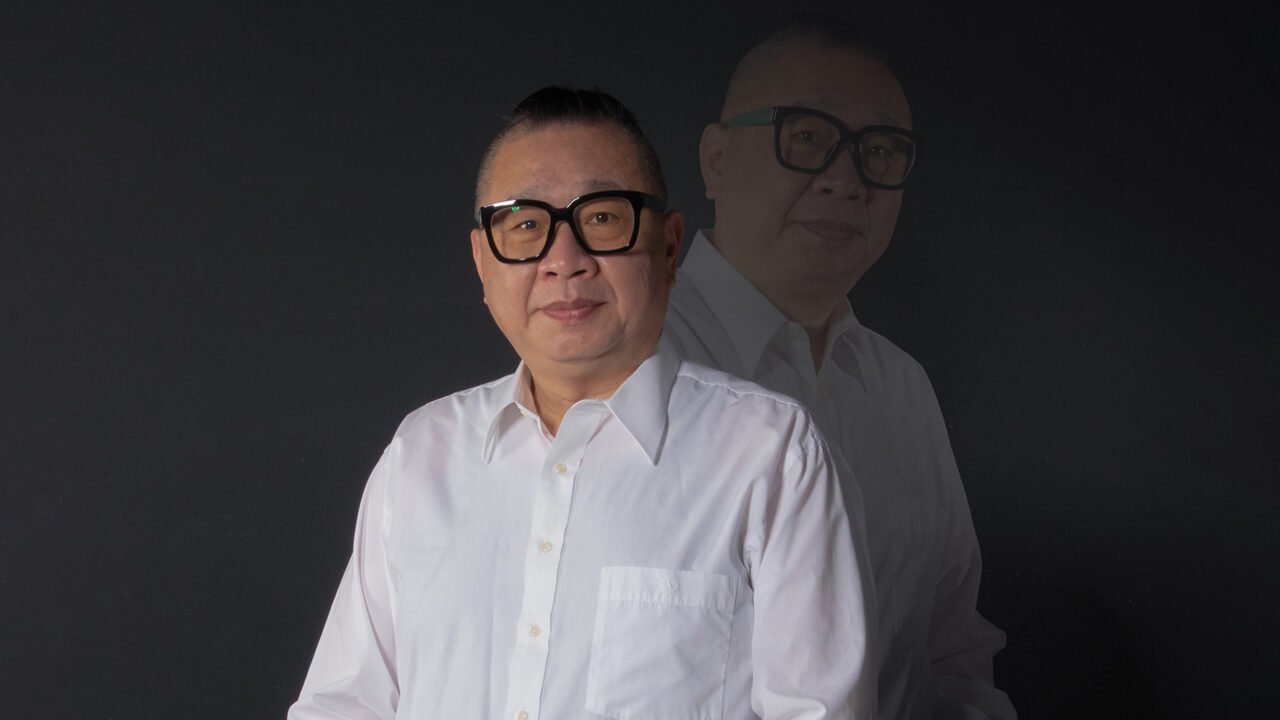
Beyond the Numbers: Turning Data into Strategy with Rohit Nimmala
May 5, 2025
Luxi Yu, A Multifaceted Designer Leveraging Interface and Speculative Design
May 6, 2025
Divya Kodi | Noble Business Awards
Divya Kodi
Divya Kodi is a senior data analyst with over 11 years of experience in IT, specializing in cybersecurity, data analytics automation, and API management. In addition to her hands-on technical work, she actively contributes to academic research and mentors teams on leveraging data for smarter, more secure operations.
I’m Divya Kodi, a senior data analyst with over 11 years of experience in Information Technology, specializing in areas such as cybersecurity, data analytics automation, and API management. My role typically involves working across various stages of project lifecycles, from requirements gathering and application design to development, testing, and deployment. I also focus on providing data-driven insights and solutions that help organizations improve their operational efficiency and decision-making.
I’m deeply involved in research as well and have contributed to several prestigious journals and conferences, particularly in the fields of data analytics and cybersecurity. Beyond my technical expertise, I am passionate about mentoring and collaborating with others on innovative research projects.
Currently, I am engaged with a range of organizations in both technical and advisory roles, helping teams leverage data for better outcomes. Whether it's refining analytics practices, improving cybersecurity protocols, or optimizing operational processes, I aim to drive impactful results across the board.
When I first learned about the recognition I received, I felt incredibly humbled and honored. It's always gratifying to know that your work is being recognized by your peers and the broader community. For me, this win represents the culmination of years of hard work, dedication, and a passion for pushing the boundaries of what’s possible in cybersecurity and data analytics. It validates not just the technical aspects of my career but also the commitment to mentorship and collaboration.
Personally, it’s a reminder of the importance of continuous learning and growth. Professionally, it reinforces my belief in the value of research and data-driven decision-making in transforming industries. This recognition fuels my passion to contribute even more to the field, as it opens up new opportunities to collaborate, mentor, and drive innovations that can make a meaningful difference.
It also motivates me to keep pushing the limits of what I can achieve and to support others in their professional journeys as well. Recognition like this gives a sense of accomplishment, but it also serves as a stepping stone toward future goals and opportunities.
The inspiration to submit my entry for this competition stemmed from a desire to share the work I’ve been so passionate about in the fields of cybersecurity and data analytics automation. I’ve always believed in the power of data to unlock deeper insights and drive impactful change, so when the opportunity arose, I saw it as a platform to showcase the innovative approaches and solutions I’ve developed over the years.
One of the key aspects that made me confident my submission could stand out was its focus on practical applications. Rather than just presenting theoretical concepts, I wanted to highlight real-world solutions that had measurable impacts on businesses. My submission was centered around the integration of advanced data analytics and automation techniques into existing business processes—something that’s becoming increasingly important in today’s tech-driven world.
Additionally, my experience in leading cross-functional teams and collaborating on complex research projects added a unique dimension to my submission. I knew that presenting a blend of technical expertise with a strong focus on team collaboration and business outcomes would resonate with judges looking for solutions that were not only innovative but also practical and impactful.
Ultimately, I felt that my submission would stand out because it demonstrated a balance between technical excellence and real-world value, which is a key focus in my career.
A defining moment in my career came early on when I transitioned from purely technical roles into leadership positions that involved cross-functional collaboration. Initially, I focused heavily on the technical side—developing, testing, and deploying software.
But over time, I realized that to make a real impact, I needed to expand my focus beyond just the code and systems. The turning point was when I took on a project that required collaborating with both technical teams and non-technical stakeholders to deliver a solution that aligned with business goals.
This experience taught me the importance of bridging the gap between technology and business strategy. It shifted my perspective from just solving technical problems to considering how those solutions could address broader organizational challenges. I began to see the value in understanding the business context and aligning technical solutions with tangible outcomes.
This shift in mindset was crucial because it helped me grow as a leader in the field of data analytics and cybersecurity. I began seeking out opportunities to work on high-impact projects that required both deep technical expertise and the ability to drive business value through innovation.
As a result, I was able to mentor others, foster collaboration, and take on research projects that pushed the envelope in both technology and its application.
That turning point laid the foundation for everything I’ve done since, from my involvement in cutting-edge research to my ability to communicate the value of complex data-driven insights to diverse teams. It’s the reason I feel confident in my ability to contribute to important industry advancements today.
As a data analyst and cybersecurity expert, I was often immersed in highly specialized tasks, but I quickly learned that it was just as important to convey the value and implications of those tasks in a way that was accessible and actionable for people who didn’t have the same technical background.
To overcome this, I made a conscious effort to develop my communication skills, especially in presenting technical concepts in a simple and relatable way. I focused on learning how to align technical work with business objectives, and this became a key factor in the success of many of my projects.
I also sought mentorship from colleagues who excelled in this area, learning from their approaches and refining my own communication style. This helped me gain more trust and buy-in from cross-functional teams and leadership.
Another significant challenge has been navigating the ever-evolving landscape of cybersecurity and data analytics. The rapid pace of technological change can sometimes feel overwhelming, and staying ahead of the curve requires constant learning and adaptability.
To address this, my team and I established a culture of continuous improvement and knowledge sharing. We regularly engage in research, attend conferences, and collaborate with other experts in the field to stay informed and ahead of emerging threats and trends.
This recognition provides a unique opportunity to further both my personal and professional goals. On the one hand, it serves as validation for the work I’ve done, but more importantly, it opens up doors for broader visibility and influence in the industry. I plan to leverage this recognition in several ways:
I plan to use this recognition as a springboard for connecting with other experts, thought leaders, and organizations in the cybersecurity and data analytics space.
Collaborating with others is key to advancing in this fast-evolving field. By being recognized, I hope to foster partnerships that can lead to new projects, research collaborations, and innovative solutions that push the boundaries of what we can achieve.
This recognition will provide a platform for me to continue publishing research and contributing to thought leadership in the field. I aim to write more papers, participate in conferences, and engage in discussions around the future of data analytics and cybersecurity. This will not only help me grow professionally but also contribute to the overall advancement of the industry.
One of the most valuable aspects is the feedback you receive from judges and peers. This feedback can provide fresh perspectives on your work, highlight areas for improvement, and inspire you to refine and develop your ideas further. The experience can be a stepping stone for personal and professional growth.
Being recognized in a competition adds credibility to your work and achievements. It signals to others that your contributions are valuable and that you’ve met certain standards of excellence. This can build trust with clients, stakeholders, and potential employers, making it easier to gain support for your future projects and endeavors.
Competitions can serve as a strong motivator. They push you to refine your ideas, challenge yourself, and think outside the box. The process of preparing an entry can inspire new ways of thinking about problems, leading to innovative solutions that you might not have explored otherwise.
AI and Machine Learning Integration: AI and ML are transforming cybersecurity and data analytics by enabling real-time threat detection, automated responses, and smarter insights.
How I’m Preparing: My team is building advanced models to detect patterns, predict risks, and optimize processes. I stay current with AI/ML trends to apply them effectively in our work.
Automation and DevSecOps: Security is now embedded into every stage of development through DevSecOps, ensuring issues are addressed early and efficiently.
How I’m Preparing: We’re automating key cybersecurity and analytics tasks to improve speed, accuracy, and security throughout the development lifecycle.
Cybersecurity as a Service (CSaaS): With growing threats and limited talent, more businesses are turning to outsourced security solutions.
How I’m Preparing: I’m focused on delivering scalable, managed cybersecurity services that are flexible, cost-effective, and accessible for businesses of all sizes.
Never Stop Learning: The pace of change in this industry is rapid, and staying ahead requires continuous learning. Whether it's mastering a new technology, understanding evolving threats, or learning a new programming language, the key is to remain curious and invest in expanding your knowledge base. Seek out courses, certifications, and workshops, and don’t be afraid to ask questions or explore areas outside your comfort zone.
In any technical field, especially in cybersecurity and data analytics, you will face challenges that seem insurmountable at first. Instead of shying away from these challenges, embrace them as learning opportunities. Don’t be afraid to fail; failure is often the best teacher. Learn from it, iterate, and move forward with greater wisdom.
Your technical skills are essential, but relationships are equally important. Build a network of colleagues, mentors, and industry peers. Collaborating with others can help you see problems from new perspectives, and mentors can offer guidance and insights that are invaluable for your growth. Networking can also open doors to opportunities that you might not have come across on your own.
Before you even start working on your submission, take time to thoroughly read and understand the competition or submission guidelines. Ensure you meet all the criteria and address all the required elements. Submissions that miss key components or don’t follow the rules are often disqualified or penalized.
Make sure your submission focuses on a clear, well-defined problem or objective. A successful entry is one that identifies a specific challenge and demonstrates how your approach addresses it. This makes your submission feel purposeful and aligned with the goals of the competition.
Judges are often looking for fresh, creative solutions. Think about what makes your submission unique. How does it stand out from the rest? Whether it’s a novel approach, a new technique, or an innovative application of existing technology, highlighting originality is crucial. Try to offer something that hasn’t been done before or, if it has, present it in a new light.
Divya Kodi
Divya Kodi is a senior data analyst with over 11 years of experience in IT, specializing in cybersecurity, data analytics automation, and API management. In addition to her hands-on technical work, she actively contributes to academic research and mentors teams on leveraging data for smarter, more secure operations.
Explore more insights by reading the interview Inside T-Mobile’s Product Evolution with Anup Raja Sarabu here.




